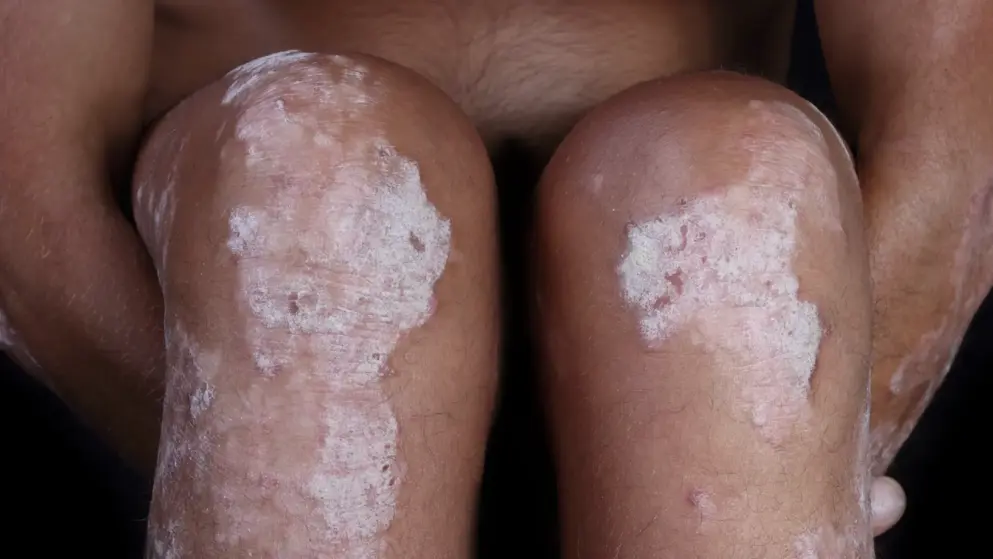
Skyrizi achieved superiority versus apremilast for co-primary endpoints among adult patients with moderate plaque psoriasis in phase IV head-to-head study
AbbVie announced the British Journal of Dermatology published results from the head-to-head Phase IV IMMpulse study that evaluated the efficacy and safety of Skyrizi (risankizumab) compared to Otezla (apremilast) among adult patients with moderate plaque psoriasis eligible for systemic therapy1
This study achieved all primary and ranked secondary endpoints with no new safety signals identified.
Highlights from this open-label, efficacy assessor-blinded study include: i. At Week 16, a significantly higher proportion of patients who received risankizumab achieved the Period A co-primary endpoints of Psoriasis Area and Severity Index (PASI) 90 and Static Physician's Global Assessment (sPGA) 0/1 [55.9% (66/118) of patients achieved PASI 90 and 75.4% (89/118) achieved sPGA 0/1 with risankizumab versus 5.1% (12/234) and 18.4% (43/234) with apremilast; both with P<0.001].the proportion of patients achieving the ranked secondary endpoint of pasi 75 at week 16 was also significantly higher in risankizumab- versus apremilast-treated patients [84.7% (100 118) versus 18.8% (44 234) respectively; p><0.001]. ii. at week 52, among patients who failed to achieve pasi 75 after 16 weeks of treatment with apremilast, a significantly higher proportion of patients re-randomized to treatment with risankizumab achieved the period b primary endpoint of pasi 90 as compared to those re-assigned to continue treatment with apremilast [72.3% (60 83) versus 2.6% (2 78); p><0.001].
After 52 weeks of continuous treatment, 73.7% of risankizumab patients achieved the pre-specified endpoints of PASI 90 and 63.6% PASI 100, with 4.5% and 2.7% of apremilast patients achieving PASI 90 and PASI 100 at Week 52, respectively (nominal p-value <0.001 for both comparisons).
The safety profile for risankizumab in this study was consistent with previously reported studies; it was well-tolerated with no new safety signals identified. The most frequent adverse events (reported in greater than 5%) in risankizumab-treated patients were COVID-19, nasopharyngitis and upper respiratory tract infection. Diarrhea, nausea and headache were most frequent among apremilast-treated patients. Serious adverse events were reported in 0.8% and 2.9% of risankizumab-treated patients and 1.7% and 2.1% of apremilast-treated patients in Periods A and B, respectively. During Period A and Period B among the re-randomization arms, 6.8% and 5.2% of apremilast-treated patients discontinued treatment due to an adverse event, respectively, while no patient discontinued on risankizumab; on the continuous risankizumab arm, one patient discontinued due to an adverse event.
"As a physician, it's crucial to validate different options that can achieve high treatment targets, and this study provides practice-relevant data," said lead study investigator, Linda Stein Gold, M.D., director of clinical research, department of dermatology, Henry Ford Health System. "These data reinforce the efficacy of Skyrizi for use in systemic-eligible moderate psoriasis patients with an observed safety profile similar to prior studies."
Based on analyses of the Treatment Satisfaction Questionnaire for Medication version 9 (TSQM-9), which were pre-specified unranked endpoints, risankizumab-treated patients reported greater treatment satisfaction at Week 16, with higher scores (out of 100) in all three domains of satisfaction with effectiveness (80.6), satisfaction with convenience (84.9) and global satisfaction (86.2) compared to apremilast-treated patients (46.9, 69.0 and 47.7, respectively; nominal p-value <0.001 for all comparisons).
About IMMpulse Study: IMMpulse is a Phase IV, global, multicenter, randomized, open-label, efficacy assessor-blinded, active comparator study examining the effect of risankizumab (150 mg X 1 s.c at wk0, wk4, wk16, wk28, wk40) compared to apremilast (30 mg BID oral following titration) in adults with moderate plaque psoriasis who are candidates for systemic therapy. Patients must have stable moderate psoriasis at both screening and baseline, defined as: 1) BSA greater than 10% and less than 15%; 2) PASI greater than 12; 3) sPGA =3 (moderate) to enter the study. The study design comprised a screening period of up to 35 days, a 52-week treatment period and a follow-up phone call for safety. The 52-week treatment duration included two periods: Period A from Weeks 0 to 16, which evaluated the superiority of risankizumab over apremilast, and Period B from Weeks 16 to 52, which evaluated the outcomes following re-randomization to risankizumab versus continuing apremilast in patients who were PASI 75 non-responders with apremilast at Week 16.
See- Stein Gold, L.F., et al (2023), "Comparison of risankizumab and apremilast for the treatment of adult patients with moderate plaque psoriasis eligible for systemic therapy: results from a randomised, open-label, assessor-blinded phase IV (IMMpulse) study." British Journal of Dermatology. doi: 10.1093/bjd/ljad252

